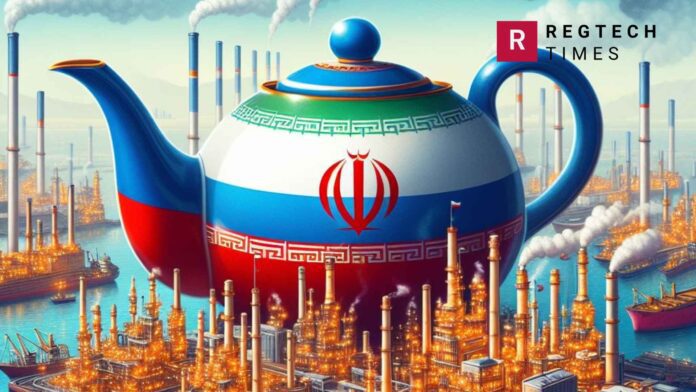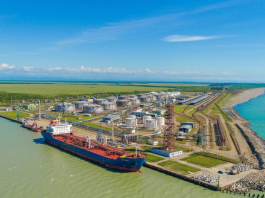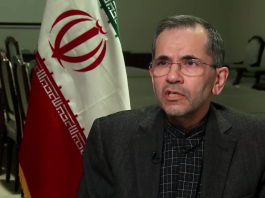China has played a pivotal role in aiding both Russia and Iran in circumventing Western sanctions. China walks a tightrope between economic interests and geopolitical realities. It seeks to maintain stable relations with both Iran and the United States. Supporting Russia and Iran’s oil trade while avoiding confrontation with US sanctions requires delicate maneuvering.
Oil Market Facilitation
China has become a crucial alternative market for Russia and Iran’s restricted oil exports. Despite escalating sanctions from the US-led alliance, Beijing has created a channel for its crude oil. As Russia and Iran face escalating sanctions from the US-led alliance, China has created an alternative market for their restricted oil. This market operates in the Chinese renminbi and allows their crude-loaded “dark fleet” tankers to bypass international maritime rules through covert maneuvers.
Emergence of Teapot Refineries
Teapot refineries are small, independent oil refineries in China. They are called “teapots” because they are smaller in scale compared to the large state-owned refineries. These refineries are primarily located in Shandong province and other regions along China’s eastern coast.
Astonishingly, these unassuming teapots clandestinely handle approximately 90% of Iran’s total oil exports. How do they manage this feat? The answer lies in their agility, adaptability, and strategic positioning within China’s oil ecosystem.
Teapot refineries are privately owned and may misrepresent the origin of their oil products to conceal the fact that they are sourced from sanctioned countries. By falsifying shipping documents or using intermediaries, they can make it appear as though the oil products are coming from non-sanctioned sources.
Teapot refineries can use alternative financial systems, such as cryptocurrency or barter trade, to circumvent traditional banking channels that are subject to sanctions. This allows them to conduct transactions outside the purview of sanctions enforcement.
Iran’s Stealthy Approach
Iranian fleet tankers, when sailing, often turn off their transponders, which are devices that broadcast their location and identity. This makes it difficult for other countries to track them and know who they are.
When these tankers arrive in China, they pretend to be ships from other regions. This deception helps them avoid detection and scrutiny from authorities who might be monitoring their movements.
Additionally, when conducting transactions in China, these tankers use Chinese currency and payment systems. After receiving payment in renminbi, Iran faces two choices: it can either purchase Chinese goods or deposit the currency in a Chinese bank.
However, Iran’s ability to spend renminbi outside of China is limited because the currency is not fully convertible, making it less attractive to other countries as a stable currency for storing value or conducting transactions. While the renminbi’s role in global trade has grown recently, this growth is primarily due to China’s trade with its partners using the renminbi. The currency is seldom used in transactions between two countries when China is not involved.
This choice makes it harder for Western countries, which might have imposed sanctions on Iran, to monitor and track the financial transactions involving these tankers.
Russia’s Similar Strategy
In addition to the Shadow Fleet technique, Russia has increased its imports of technology from Chinese partners. This collaboration allows Russia to access advanced technology and expertise from China, which can help enhance its industries and infrastructure.
The surge in Renminbi trading in Moscow, the capital of Russia, is significant. The Renminbi is the official currency of China, and an increase in its use indicates a growing economic relationship between Russia and China. This trend has become more pronounced after the G7 countries imposed a cap on oil export prices. This cap may have pushed Russia to seek alternative trading partners and currencies, further strengthening its ties with China.
China’s Calculated Aid
While China assists both Russia and Iran, it remains within the bounds of safeguarding its own interests. Evidence shows that three out of four Chinese banks halted payments from sanctioned Russian firms following the US introduction of new secondary sanctions in December 2023.
China gets Russian and Iranian supplies at a discount of $15-30 on the global oil price and then processes the cheap hydrocarbons into higher-value products.




